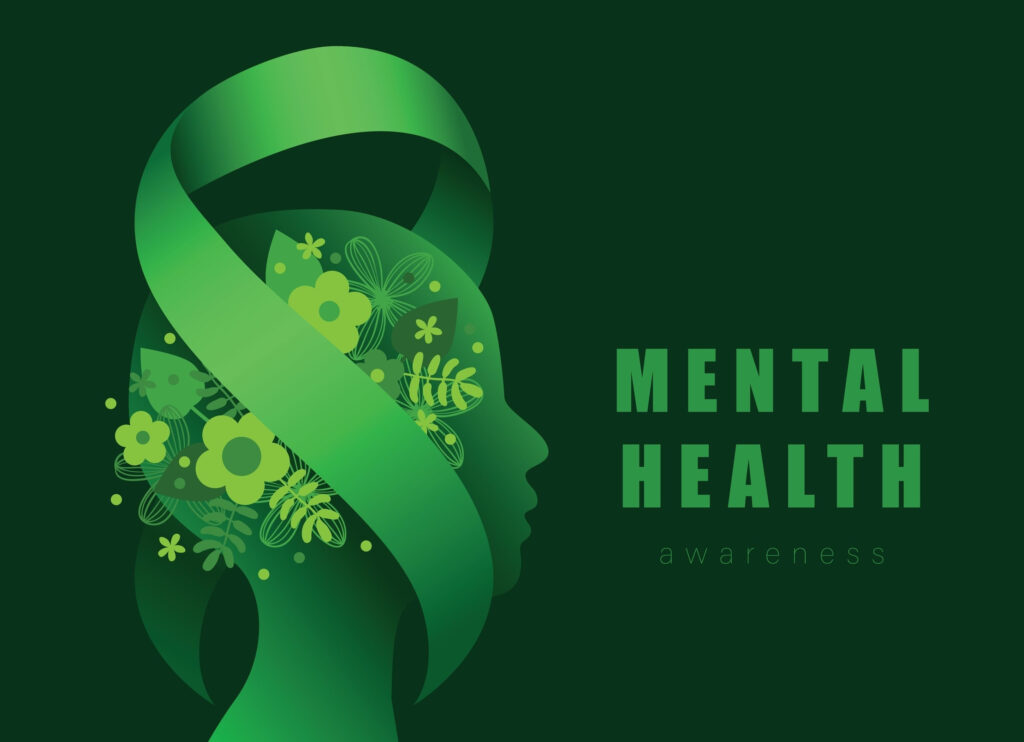Mental Health Wellness, Substance Use Disorders, DUI services, and Level II Education...
New Paradigm Counseling offers a multidisciplinary team that provides individual therapy, intensive outpatient programs, court-mandated classes, anger management, sobriety monitoring, life and recovery coaching, and psychoeducation groups.
Programs and Services
Individual Therapies and Court Ordered Services
New Paradigm Counseling offers a multidisciplinary team that provides individual therapy, intensive outpatient programs, court-mandated classes, anger management, sobriety monitoring, life and recovery coaching, and psychoeducation groups.
Our mission is to Provide Exceptional Services that Strengthen, Educate, and Empower Individuals Through Responsibility, Knowledge, and Integrity.
What We Treat
Are you feeling lost in life or having difficulty handling your emotions?
Do you require substance-abuse treatment, either court mandated or self- initiated?
New Paradigm Counseling provides Counseling and DUI services. We believe in crafting individualized strategies for growth, drawing from evidence-based therapies and innovative techniques.

Individual Therapy
Areas of Focus:
- Mental Health Disorders
- Substance Use Disorders
- Behavioral Addictions
- Co-occurring Mental Health Disorders

Intensive Outpatient Program (IOP)
Areas of Focus:
- Substance Use Disorders
- Behavioral Addictions
- Co-occurring Mental Health Disorders

IMPAIRED DRIVING TREATMENT PROGRAM
Driving While Ability Impaired (DWAI)/Driving Under Influence (DUI)
Areas of Focus:
- DUI/DWAI Legal Offenses
- Risky Drinking Behaviors
- Substance Use Issues Impacting Driving
- Relapse Prevention

Enhanced Therapies and Services
Areas of Focus:
- Strategies for Self-Improvement and Change: Personal Development Goals And Motivational Interviewing
- Anger Management: Emotional Regulation and Conflict Resolution
- Relapse Prevention: Substance Use or Behavioral Relapse Risk
- Dialectical Behavior Therapy: Emotional Dysregulation, Borderline Personality Disorder
- Moral Reconation Therapy: Addressing Criminal Thinking and Behaviors
- Cognitive Behavioral Therapy: Develop alternative ways of thinking and behaving to reduce psychological distress.
- Life and Recovery Coaching
Our Schedule
Monday
9 AM – 12 PM
Intensive Outpatient Program (In-person | Hybrid | Telehealth)
4 – 6 PM
Level II Therapy
(Telehealth)
Tuesday
6 – 8 PM
Dialectical Behavior Therapy (In-person | Hybrid | Telehealth)
6 – 8 PM
Level II Education (Telehealth)
Wednesday
9AM – 12 PM
Intensive Outpatient Program (In-person | Hybrid | Telehealth)
6 – 8 PM
Level II Therapy
(In-person | Telehealth)
Thursday
9 AM – 12 PM
Intensive Outpatient Program (In-person | Hybrid | Telehealth)
4 – 6 PM
Anger Management
(In-person | Hybrid | Telehealth)
6 – 8 PM
Level II Education
(In-person)
Friday
6 – 8 PM
Moral Reconation Therapy-MRT (Telehealth)
7:30 PM
Interlock enhancement counseling
(Telehealth – every 2nd Friday of the Month)
More groups are being added as needed.
Individual Sessions with the Therapist is by appointment ONLY.
IMPAIRED DRIVING TREATMENT PROGRAM
Driving While Ability Impaired (DWAI)/Driving Under Influence (DUI)
DWAI/DUI refers to the act of operating a motor vehicle while impaired, which could include and is not limited to being influenced by medication, alcohol, illness or drugs. Penalties vary depending on the severity of the offense and can include fines, license suspension, community service, and even imprisonment.
All groups are led by experienced, kind and devoted counselors. You can expect an interactive, engaging journey of learning and transformation.
Level I Education: 12 hours
6 consecutive weeks-2 hour each week
Level II Education: 24 hours
12 consecutive weeks – 2 hours each week
Level II Therapy: Track (A, B, C, D)
Pre-Requisite Level II Education
Level II Four Plus: Track F
180 hours of assessment driven treatment over 18 months
4 or more impaired driving convictions over a lifetime.
Track A: 21 consecutive weeks- 2 hours each week
Normally for the first-time offender with a BAC below .15.
Track B: Assessment driven treatment
26 consecutive weeks- 2 hours each week.
Normally for the first-time offender with a BAC below .20. or
a first time offender with a refusal to submit to a mandated sobriety test.
Track C: Assessment driven treatment
34 consecutive weeks- 2 hours each week
1-3 priors or a BAC less than .15
Track D: Assessment driven treatment
43 consecutive weeks- 2 hours each week
1-3 priors or a BAC greater than .15
ENHANCED THERAPIES AND SERVICES
Intensive Outpatient Program/Outpatient Programs
Telehealth/In-Person Hybrid
12 consecutive weeks – 9-19 hours a week as needed to assist with the necessary behavioral changes. *May be extended.
Intensive Outpatient Program/Outpatient Program is indicated when an assessment reveals that an individual may benefit from substance abuse services that are more intensive than Level 1 or Level 2 DUI classes.
Intensive Outpatient Treatment (IOP) is a form of ambulatory care that takes place in person. Unlike Residential Rehabilitation, IOP allows you to live at home, work, and participate in community activities while improving your recovery.
Anger Management
Telehealth/In-Person Hybrid
12 consecutive weeks – 90 minutes a week
Anger Management (AM) is a cognitive- behavioral approach exploring the role anger plays in your life and offers strategies for managing and changing the way you experience and express anger.
Will address topics such as:
- Personal beliefs about anger
- Consequential thinking
- Strategies for self-control
- Conflict Management
- Communication skills
Dialectical Behavior Therapy (DBT)
Telehealth/In-Person Hybrid
12 consecutive weeks – 120 minutes a week and may include additional individual sessions.
Found to be effective in treating a range of mental health disorders, including depression, anxiety, eating disorders, substance use disorders, post-traumatic stress disorder (PTSD) and borderline personality disorder.
DBT is based on the idea that some people are more emotionally sensitive than others and may have difficulty regulating their emotions. This emotional dysregulation can lead to impulsive behavior, self-harm, and suicidal thoughts.
DBT teaches clients skills to manage their emotions and improve their interpersonal relationships. It is a structured therapy that typically involves both individual therapy and group skills training.
Moral Reconation Therapy (MRT)
MRT is a cognitive-behavioral treatment with a focus on moral reasoning.
Progressing through the stages of treatment is aimed at personal growth in the following areas:
- Form a Positive Identity
- Confront Negative Behaviors, Attitudes, and Beliefs
- Assessment of Current Relationships
- Reduction in Self-Indulgence and Improved Frustration Tolerance
- Develop Improved Moral Reasoning
- Reinforce Positive Habits/Behaviors
- Improvement of Self-Concept
Interlock Enhancement Counseling (IEC)
5 Consecutive Months – Once per month. Four individual 30-minute sessions. Track B, C, or D Only.
The Ignition Interlock device must be installed at the onset of therapy.
All sessions must be completed to receive credit for 10-hours towards the therapy track.
Relapse Prevention Classes
Relapse prevention (RP) is a cognitive behavioral approach with the goal of identifying and addressing high-risk situations for relapse and assisting individuals in maintaining desired behavioral changes.
- Eliminating stressors.
- Developing appropriate coping mechanisms.
- Recognizing and changing maladaptive patterns of Substance Abuse.
Strategies for Self-Improvement and Change
This program refers to a set of techniques, methods, and practices aimed at helping individuals achieve personal growth and make positive changes in their lives.
These strategies can be applied to various areas of life, including physical health, mental health, relationships, career, and personal development.
- Developing supportive communication skills.
- Identifying and changing negative thought patterns and behaviors.
- Developing healthy habits and routines.
- Learning new skills and knowledge to enhance personal and professional growth.
- Practicing self-care and stress management techniques.
- Engaging in meaningful activities and hobbies that bring joy and fulfillment.
We help individuals overcome challenges and achieve their desired outcomes, preventing relapse, recidivism and other unhealthy, undesired behaviors.
Our Commitment To You

need help?
We accept Medicaid!
Private Pay Options are Available and Affordable.
Phone:
720-733-8886
Email:
info@newparadigmcounselingco.com

